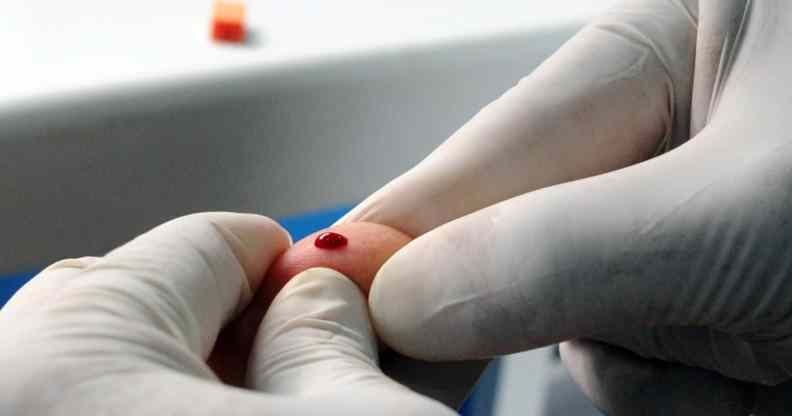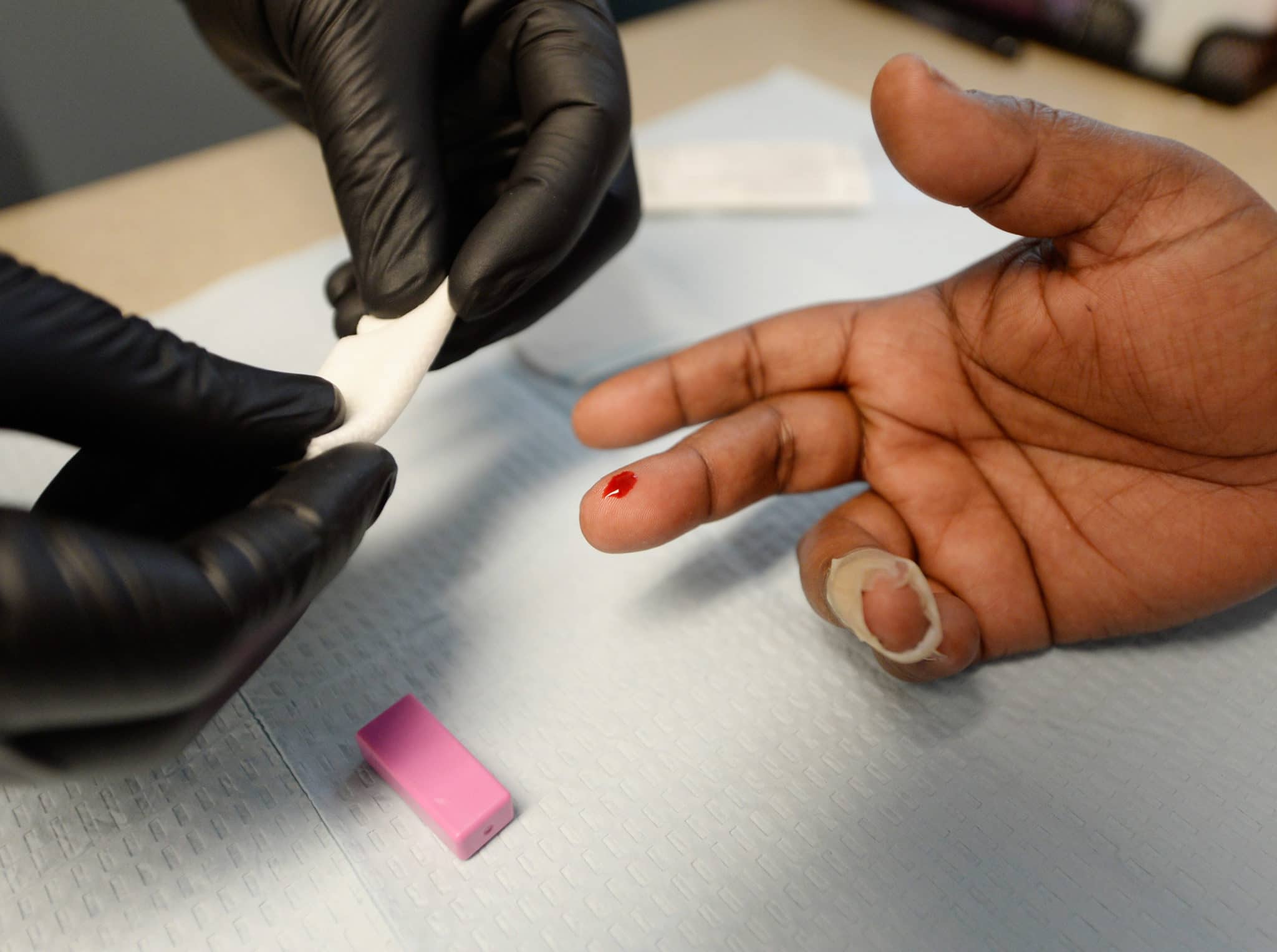Straight people are much less likely to have ever been tested for HIV – despite making up nearly 40 per cent of new cases

Straight people are more likely to be diagnosed with HIV at a later stage, after their health is already suffering. (Getty/ABDELHAK SENNA)
Straight people are significantly less likely to have ever been tested for HIV, despite making up nearly four in 10 new cases.
Polling by Terrence Higgins Trust to mark the start of HIV Testing Week found that while 58 per cent of lesbian, gay and bisexual people report being previously tested for HIV, the same is true of just 16 per cent of heterosexuals – even though straight people made up 38 per cent of those diagnosed with HIV in 2019.
As a result of lower testing rates, straight people are more likely to be diagnosed with HIV at a later stage, after their health is already suffering. More than half of cases (52 per cent) in heterosexual men are diagnosed late, compared to an overall rate of 42 per cent.
COVID crisis has led to dip in HIV testing, despite availability of at-home tests
The coronavirus crisis may have made the problem worse, with a report from Public Health England warning last month that “among those testing for STIs and HIV, heterosexuals and, particularly in the case of HIV, teenagers, have been under-represented since April 2020”.
An overall decline in tests and diagnoses has been recorded since April 2020, according to PHE, after the implementation of nationwide social and physical distancing measures.
While home-testing kits for HIV have been available via post in the UK for several years, just 16 per cent of people know they exist as an option.

More than half of cases (52 per cent) in heterosexual men are diagnosed late (Getty/Kevork Djansezian)
Ian Green, chief executive at Terrence Higgins Trust, said: “Despite all the progress made in the fight against HIV, there is still a shockingly high number of people out there who have never tested for the virus. If we’re to find all of those living with undiagnosed HIV in this country, that needs to change and quickly.
“Unlike in It’s a Sin, where the characters wait weeks for their results, HIV testing is now straightforward and easy to do – with the best option during the coronavirus pandemic to test at home. Plus, thanks to huge improvements in medication, someone diagnosed promptly and accessing treatment will live as long as anyone else their age.”
Calls for ‘opt-out’ routine testing to find unidentified cases
Terrence Higgins Trust also stresses that routine testing “needs to be drastically increased to find the estimated 6,000 people living with undiagnosed HIV in the UK” – following a call from the HIV Commission for testing to become part of standard admissions procedures in hospitals and GPs’ surgeries.
The HIV Commission said that testing should be delivered “on an opt-out basis regardless of age, gender, ethnicity or sexuality in as many possible places as possible across healthcare including A&E departments, GP surgeries, routine cervical smears and gender clinics.”
Green adds: “HIV can affect anyone – no matter your gender, age, sexuality of ethnicity. Which is why testing everyone who comes into contact with our healthcare systems is crucial for achieving the goal of ending new HIV cases by 2030.”
Health and social care secretary Matt Hancock said: “We have made great progress in the diagnosis and treatment of HIV in recent years, having met the UNAIDS 90-90-90 target for the third consecutive year and establishing routine commissioning of PrEP across the majority of the country.
“We must sustain this important progress to reach our goal of zero new HIV transmissions in England by 2030. People can live with HIV for a long time without any symptoms and testing is the only way to know your HIV status to protect both your own health and the health of your sexual partners.
“During the pandemic, home testing remains a safe and confidential way to get tested and I urge all those who have not yet done so to contact a sexual health clinic or order a self test kit online.”

